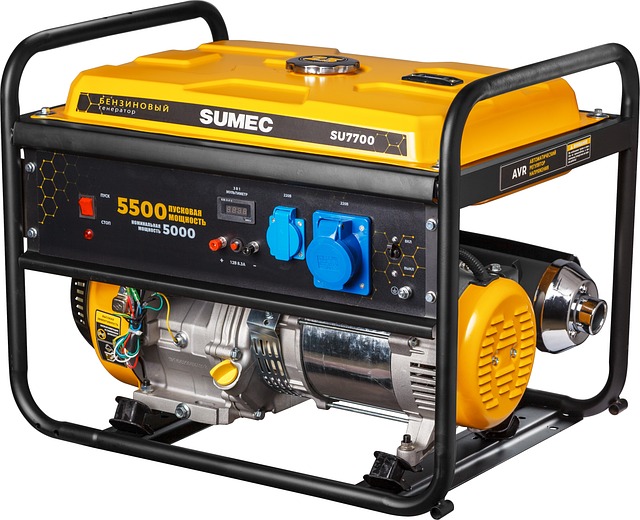If you’re new to RVing, one of the biggest adjustments is understanding how your vehicle gets power. Most of the time, that power comes from a generator.
RV generators serve two primary purposes:
- Charging the House Battery – The generator can replenish your RV’s house battery, ensuring you have stored power for later use.
- Providing Direct Power – The generator can supply 120V AC power directly to your RV’s outlets, allowing you to run appliances and electronics without relying on battery reserves.
These options give you flexibility—either use power freely while the generator is running or store energy for later use. However, charging the house battery with a generator takes time, as there is a limit to how much amperage it can provide.
To get the best performance, it’s essential to choose a generator that matches your RV’s power needs and to keep up with regular maintenance. A well-maintained generator ensures reliable power whether you’re camping off-grid or just need backup electricity.
Choosing the Right Generator for Your RV
Most RVs come equipped with built-in generators designed to match the vehicle’s power requirements. However, if you find yourself consuming more energy than your existing generator can handle—perhaps due to added appliances or extended off-grid use—you may need to invest in an additional or replacement generator.
When selecting a generator, consider both fuel type and size (power output). While fuel type affects convenience and efficiency, generator size is crucial to ensuring you have the right amperage to support your RV’s appliances without overloading the electrical system.
Determining the Right Generator Size
Generator size refers to its power output, measured in watts. Choosing the correct wattage is essential—too little power and your appliances won’t run, too much and you risk overloading your circuits.
To calculate the size you need:
- Identify power-hungry appliances – Add up the wattage of all 120V appliances in your RV.
- Factor in air conditioning – AC units require a significant surge of power when starting up. Include this startup wattage in your total.
- Find your minimum wattage – Your generator should be able to handle your total wattage needs at peak usage.
Most RVs require a generator in the 3,000 to 4,000-watt range, but this varies based on the number and type of appliances. If you’re unsure, check appliance labels or look up the model numbers online to find their power consumption.
Types of RV Generators
There are three primary types of RV generators, each with unique advantages and drawbacks:
Gas Generators
- Pros: Readily available fuel, convenient to refill along with your RV’s gas tank.
- Cons: Burns fuel quickly, runs hot, and is highly flammable—requiring careful handling. It is also the least eco-friendly option.
Diesel Generators
- Pros: Ideal if your RV runs on diesel, as you can refuel both at once. More energy-efficient than gas, less flammable, and produces more power than propane.
- Cons: Diesel fuel can be harder to find than gasoline. Diesel generators are also louder than gas or propane models.
Liquid Propane Generators
- Pros: The most environmentally friendly option with excellent fuel storage capabilities. Propane does not degrade over time like gas or diesel.
- Cons: Produces less power per gallon than gas or diesel, requiring frequent refueling. Propane refilling stations can also be harder to locate.
Choosing the Best Generator for Your Needs
If you’re replacing an existing generator, it’s usually best to stick with the same fuel type your RV was designed for. However, if you’re installing a new generator or upgrading, consider factors like fuel availability, efficiency, and environmental impact.
By selecting the right generator and maintaining it properly, you’ll ensure your RV has reliable power for all your adventures—whether you’re parked at a campsite or exploring off-grid destinations.
Generator Maintenance: Keeping Your Power Source Reliable
Whether your generator is brand new or has been running for years, proper maintenance is key to ensuring it stays in good working condition. One of the most important aspects of generator upkeep is regular use—otherwise, it can start to develop performance issues.
Why Regular Use Matters
Generators need to be “exercised” to maintain efficiency. If left idle for too long, fuel inside the system can begin to separate, leading to buildup that affects performance. This can cause the generator to run inconsistently, surging between high and low RPMs as it struggles to stabilize power output.
These issues can start after just a month of inactivity, so it’s important to schedule a maintenance run at least once a month. Running the generator for a few hours helps keep the internal components lubricated and prevents fuel-related problems.
Winter Maintenance Tips
Cold weather makes generators even more vulnerable to performance issues. During the winter, when generators are used less frequently, fuel separation and system strain become more common. To counteract this:
- Run the generator monthly, even if you aren’t using the RV.
- Turn on a few appliances in the RV while running the generator to ensure it’s producing stable power.
- Check coolant levels, as extreme temperatures can affect performance.
When to Seek Professional Help
If your generator is making unusual noises, struggling to start, or failing to provide consistent power, it may need professional attention. In these cases, take it to an RV mechanic or dealership for a thorough inspection.
By keeping up with regular maintenance, you’ll extend the lifespan of your generator and ensure reliable power whenever you hit the road.

